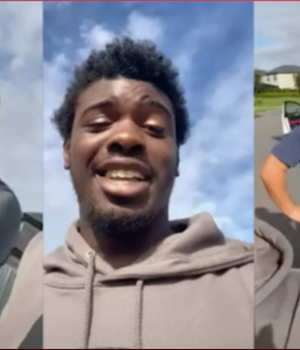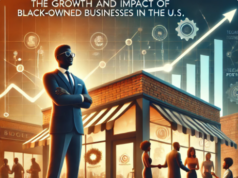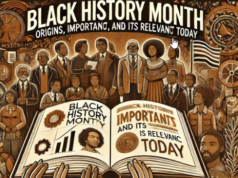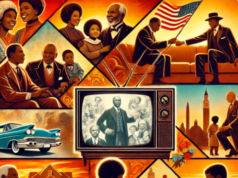In yet another disturbing case that highlights the persistent problem of racial profiling in America, a Black teenager in Florida was followed and harassed by four white men in his own neighborhood. The teen’s mother, who captured the event on video, shared it on social media, which led to public outcry and a formal investigation by local authorities. This incident is eerily reminiscent of past cases where Black people have been unjustly profiled and harassed in predominantly white communities, echoing deep-rooted racial biases that continue to plague the U.S.
Recap of the Incident:
The encounter took place in a Florida neighborhood, where four white men followed a Black teen, demanding to know whether he lived in the area. The video, which quickly went viral, shows the men questioning the boy’s right to be there. The men’s actions carried the unmistakable undertone of racial profiling, as their demands seemed to imply the teen didn’t belong. In response to the video, authorities have launched an investigation, and the NAACP is advocating for justice.
The Role of Social Media:
Social media played a pivotal role in bringing this case to the attention of authorities and the public. The video of the incident, shared on platforms like TikTok and Facebook, amassed over 3 million views, shining a light on this disturbing event. Much like the cases of Ahmaud Arbery and Trayvon Martin, social media continues to serve as an indispensable tool for holding perpetrators accountable and advocating for change.
Racial Profiling in America: An Ongoing Issue
Unfortunately, this case is not an isolated event. The pattern of white individuals policing Black people’s presence in neighborhoods is a legacy that has its roots in Jim Crow laws and segregation. In this instance, the Black teen was perceived as a threat simply because of the color of his skin—a scenario that mirrors countless other cases, such as the tragic killings of Ahmaud Arbery and Trayvon Martin.
The Sarasota County Sheriff’s Office, now investigating the incident, is conducting interviews with witnesses. Meanwhile, civil rights groups like the NAACP have become actively involved, drawing parallels to the aforementioned tragedies and highlighting the recurring nature of racial profiling in America’s predominantly white spaces.
Comparison to Similar Incidents:
This case draws chilling parallels to past instances of racial profiling and harassment:
- Ahmaud Arbery was similarly followed and questioned by white men while jogging in his Georgia neighborhood, ultimately leading to his death.
- Trayvon Martin, another Black teen, was confronted by George Zimmerman, a neighborhood watch volunteer, who similarly viewed the teen as suspicious. Martin’s death sparked national outrage and highlighted racial tensions.
Such cases underscore a pattern of Black individuals being targeted in spaces where they “don’t belong,” as perceived by their white counterparts. This recurring issue of racial profiling has deep psychological, social, and economic effects on Black communities, creating fear and perpetuating inequality.
A Call for Accountability:
The NAACP’s involvement in this case further emphasizes the need for accountability and justice. Civil rights organizations are pushing for local authorities to treat the case with the seriousness it warrants. The community has rallied behind the teen and his family, and public outcry continues to grow as more details emerge about the investigation.
How the Black Community Can Protect Themselves From Racial Profiling:
1. Know Your Rights:
Understanding your rights under the Fourth Amendment, which protects against unlawful searches and seizures, is critical when facing harassment. Being informed can provide a basis for standing your ground during inappropriate confrontations.
2. Record All Interactions:
As demonstrated in this case, video evidence can be essential in holding harassers accountable. Apps like ACLU’s Mobile Justice ensure that footage is securely uploaded, safeguarding vital evidence.
3. Stay Calm and Assertive:
De-escalation tactics are key in confrontations. While it’s important to assert your right to be in any space, remaining calm can help prevent a situation from spiraling into violence.
4. Build Strong Community Networks:
By fostering strong community ties, Black families can create a support system within neighborhoods. Knowing and trusting neighbors can provide a layer of protection and a sense of collective security.
5. Leverage Social Media Responsibly:
While social media is a powerful tool to expose injustice, it’s important to share accurate information. Raising awareness through video or firsthand accounts can help prevent further injustices.
Conclusion:
This case serves as yet another reminder that the fight against racial profiling is far from over. The parallels to Ahmaud Arbery and Trayvon Martin are undeniable, and while social media has played a significant role in amplifying these issues, systemic change is still needed. The Black community continues to face these challenges head-on, but by staying informed, building strong support systems, and leveraging tools like social media and legal resources, there’s hope for justice and a safer future.
Sources: Indisputable with Dr Rashad Richey








